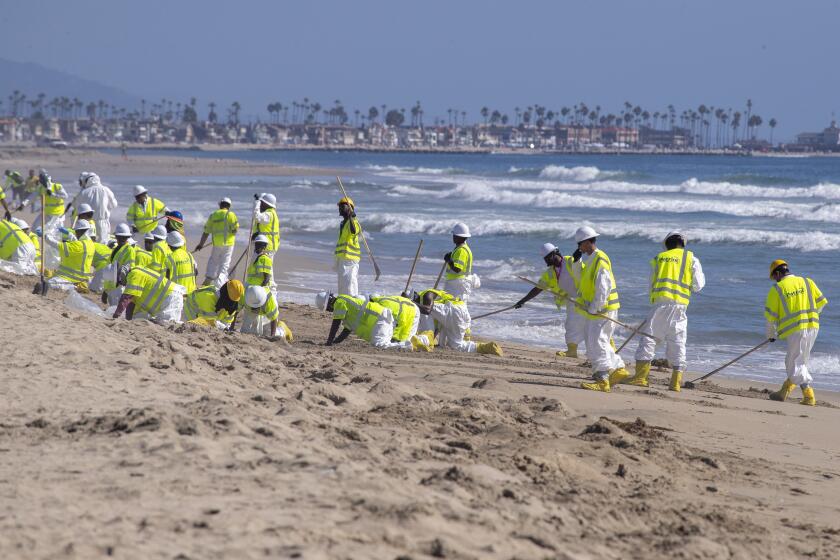The state and federal government both have the power to force wells within their jurisdictions to cease operating under certain circumstances if needed to protect the public. Doing so to a well that was still producing oil, however, could cost the taxpayers a bundle.
Federal law authorizes the secretary of the Interior to suspend and, eventually, cancel an offshore lease or permit in the case of a serious threat to human or aquatic life, property, the environment or national security. But the law also entitles the lease holder to be compensated for lost profits, which could be enormous for a productive well.
âTrying to shut down an existing facility that has its leases and drilling permits is exceedingly difficult,â said Deborah A. Sivas, a professor of environmental law at Stanford Law School. âNo facilityâs going to take that lying down. Thereâs a pretty robust takings claim here.â
State agencies hold similar authority over platforms and pipelines in state waters; in fact, their authority over pipelines and the coastal zone in general could conceivably be used to regulate aging platforms in federal waters, said Richard Charter of the Ocean Foundation. Still, the state would face a fight over future earnings if it forced an operator to close a productive platform, Sivas said.
Even when the operator shutters an old platform voluntarily, the cost can be significant. According to a consultantâs report about the platforms in federal waters off the California coast, decommissioning costs ranged from $19 million to $189 million per platform. The cost for the two drilling platforms near Huntington Beach was estimated at $182 million.
The same report indicated that seven of the 23 platforms in federal waters are no longer pumping oil and their operators are in the process of plugging wells pending decommissioning, and an eighth is in a state of âpreservation.â
When itâs time to decommission a platform, the company holding the lease is required to cap the wells there and return the environment to its previous condition. And there are provisions in both federal and state rules for lease holders to offer financial assurances that they can pay the costs, typically by posting bonds.
Whether those bonds will actually cover the cost of shutting down a platform is an open question. For example, court records from last year indicate that $150 million has been set aside for the decommissioning costs of the three platforms near Huntington Beach, well short of the consultantsâ estimated of those costs.
Michael Salman, professor emeritus of history at UCLA, noted a number of factors that could leave taxpayers on the hook for decommissioning costs, including performance bonds being disputed or insufficient. Bankruptcies are an issue too, he said, noting that many offshore platforms developed by major, deep-pocketed oil companies have been sold to much smaller operators as they aged.












